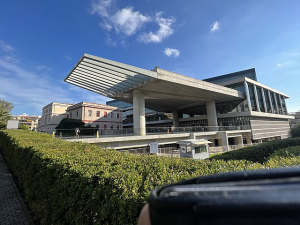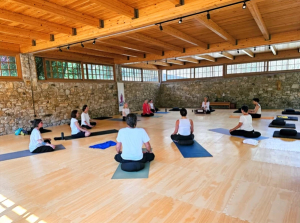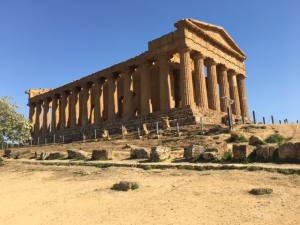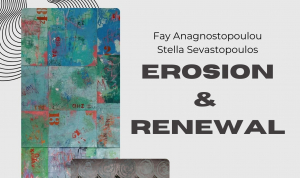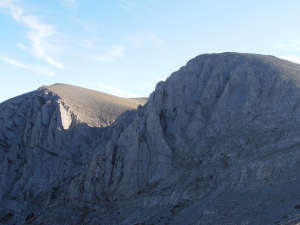ABOUT US
XpatAthens
Exploring History & Culture: 8 Must-Visit Museums In Athens For Family Fun!
Acropolis Museum

Location: Dionysiou Areopagitou 15, Athina
Telephone: 21 0900 0900
Opening Hours: Monday–Thursday: 9:00–17:00 Friday: 9:00–22:00 Saturday & Sunday: 9:00–20:00
National Archaeological Museum

As one of the largest and most important archaeological museums in the world, the National Archaeological Museum is a treasure trove of ancient Greek artifacts. From the golden Mask of Agamemnon to the intricate Antikythera Mechanism, there's no shortage of awe-inspiring exhibits to discover. Kids will love the museum's interactive displays, including a virtual tour of ancient Athens and hands-on activities where they can try on replicas of ancient armor and clothing. With its vast collection spanning thousands of years of history, the museum offers a truly immersive experience for visitors of all ages.
Location: 28is Oktovriou 44, Athina
Telephone: 21 3214 4800
Opening Hours: Tuesday: 13:00–20:00 Wednesday-Monday: 08:30–15:30

Nestled in a neoclassical mansion in the heart of Athens, the Benaki Museum offers a fascinating journey through Greek history and culture. From ancient artifacts to modern art, the museum's diverse collection spans centuries of Greek art and civilization. Families can explore beautifully decorated rooms adorned with intricate textiles and exquisite jewelry, gaining insight into the daily life and customs of Greeks throughout the ages. Highlights include a stunning collection of Byzantine icons, Ottoman-era textiles, and folk art from rural Greece.
Location: Koumpari 1, Athina
Telephone: 21 0367 1000
Opening Hours: Monday-Wednesday-Friday-Saturday: 10:00–18:00 Thursday: 10:00–00:00 Sunday: 10:00–16:00
Museum of Cycladic Art

Step into the world of the Cycladic civilization at this unique museum dedicated to the art and culture of the Cyclades islands. Featuring a remarkable collection of Cycladic figurines, pottery, and artifacts, the museum offers a glimpse into the life and customs of this ancient civilization. Kids will be captivated by the minimalist beauty of the Cycladic sculptures, while parents can appreciate the museum's serene atmosphere and insightful exhibits. Don't miss the opportunity to marvel at the iconic marble figurines dating back to the 3rd millennium BCE, which continue to inspire artists and art lovers around the world.


Delve into the fascinating world of coins and currency at the Numismatic Museum of Athens. Housed in the former mansion of archaeologist Heinrich Schliemann, the museum's elegant rooms are filled with rare coins, medals, and banknotes spanning thousands of years of history. Kids can embark on a treasure hunt through the museum, searching for hidden gems and learning about the evolution of money along the way. Highlights include ancient Greek coins depicting mythological figures and historical events, as well as rare specimens from civilizations around the world.
Location: El. Venizelou 12, Athina
Telephone: 21 0363 2057
Opening Hours: Wednesday – Monday: 08.30–15.30

Music lovers won't want to miss the Museum of Greek Folk Musical Instruments, located in the picturesque neighborhood of Plaka. Here, visitors can discover the rich musical traditions of Greece through a diverse collection of instruments, from lyres and lutes to bagpipes and drums. Families can even try their hand at playing some of the instruments themselves, making for a truly interactive and memorable experience. Highlights include traditional instruments used in folk music festivals and religious ceremonies, providing insight into the cultural heritage of Greece's diverse regions.
Location: Diogenous 1, Athina
Telephone: 21 0325 0198
Opening Hours: Monday, Wednesday, Thursday, Friday, Saturday & Sunday: 08:30 - 15:30

Discovering Harmony & Zen At Kaisanji: Greece's First Zen Monastery
An Ideal Location for Spiritual Reflection
Kaisanji finds its home on the picturesque island of Serifos, near the enchanting Kalo Ambeli beach. This idyllic setting boasts unobstructed views of the sea, gentle construction, and a distinctive natural beauty that makes it the perfect location for the establishment of a Zen monastery.
Harmony with Nature: Architectural Design
At Kaisanji, every aspect of the architectural design is a reflection of the monastery's core principles—calmness, simplicity, and equilibrium with nature. Influenced by Japanese culture and the island's unique architecture, Kaisanji's design seamlessly integrates with its surroundings. Local natural materials like stone, reed, and wood intertwine with traditional Japanese elements, creating a harmonious blend of two architectural traditions.
Embracing Natural Elements
Water, a symbol of purity and tranquility, plays a central role in Kaisanji's design. From the Hato lake to the flowing stream that winds its way through the monastery, water elements enhance the sense of calmness and lead visitors on a journey of introspection. The Zen garden, with its circular pattern of rocks and pebbles, further enhances the meditative atmosphere, inviting guests to connect with nature and themselves.
Balancing Tradition and Modernity
Kaisanji's architecture reflects a delicate balance between tradition and modernity. While paying homage to Japanese Zen meditation spaces, the interior design incorporates modern elements to enhance the overall experience. Perforated partition panels filter natural light, creating a play of light and shadow that adds to the meditative ambiance. The Zendo, Kaisanji's meditation hall, serves as a focal point for spiritual reflection, with its simple yet practical design aligning with the essence and philosophy of Zen.
Embark on Your Zen Journey
Experience the serenity of Serifos Island, where nature's beauty and Zen teachings harmonize to create an oasis of calmness and reflection. Whether you're a seasoned practitioner or new to the path, Kaisanji welcomes all who seek solace, connection, and inner peace.
Online Platform For Postal Voting Registration Launched
Unraveling Ancient Greek Wisdom: Classic Proverbs & Their Significance
Meaning: "Know thyself."
Origin: Inscribed in the Temple of Apollo at Delphi, this famous aphorism has been attributed to various ancient Greek sages, including the philosopher Thales of Miletus and the oracle of Delphi. It emphasizes the importance of self-awareness, introspection, and understanding one's own strengths, weaknesses, and limitations in the pursuit of wisdom and self-improvement.
Meaning: "Do not call anyone happy before the end."
Origin: According to Herodotus, Kroisos, the king of Lydia, impressed by his own wealth and achievements, asked Solon who the happiest man in the world was. Solon, instead of praising Kroisos, famously responded with the proverb "μηδένα πρὸ τοῦ τέλους μακαρίζε" (mēdena pro tou telous makarize), advising Kroisos not to consider anyone truly happy until their life had ended. This encounter served as a cautionary tale about the uncertainty of fortune and the fleeting nature of happiness, despite Kroisos' immense wealth and power.
Ancient Frieze From Zeus Temple Found Near Shore
Originally published in Greek, on: enikos.gr
FokiaNou Art Space Presents: Erosion & Renewal
Sleepover At The Industrial Gas Museum
Note: Phone reservations are mandatory for securing participation in this event.
4 Lesser-Known Greek Winter Escapes

@mikaragkounis
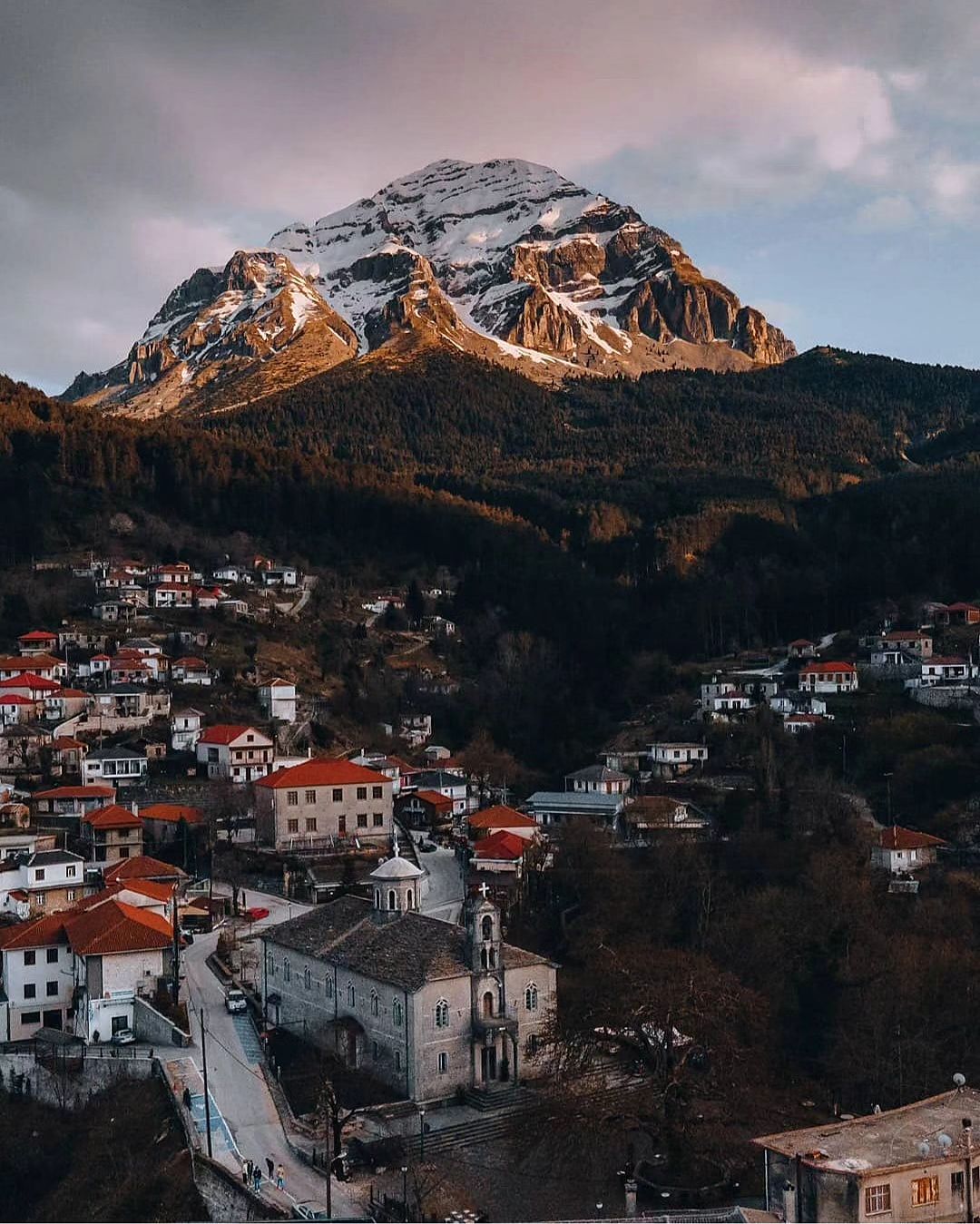
@georgebozouris
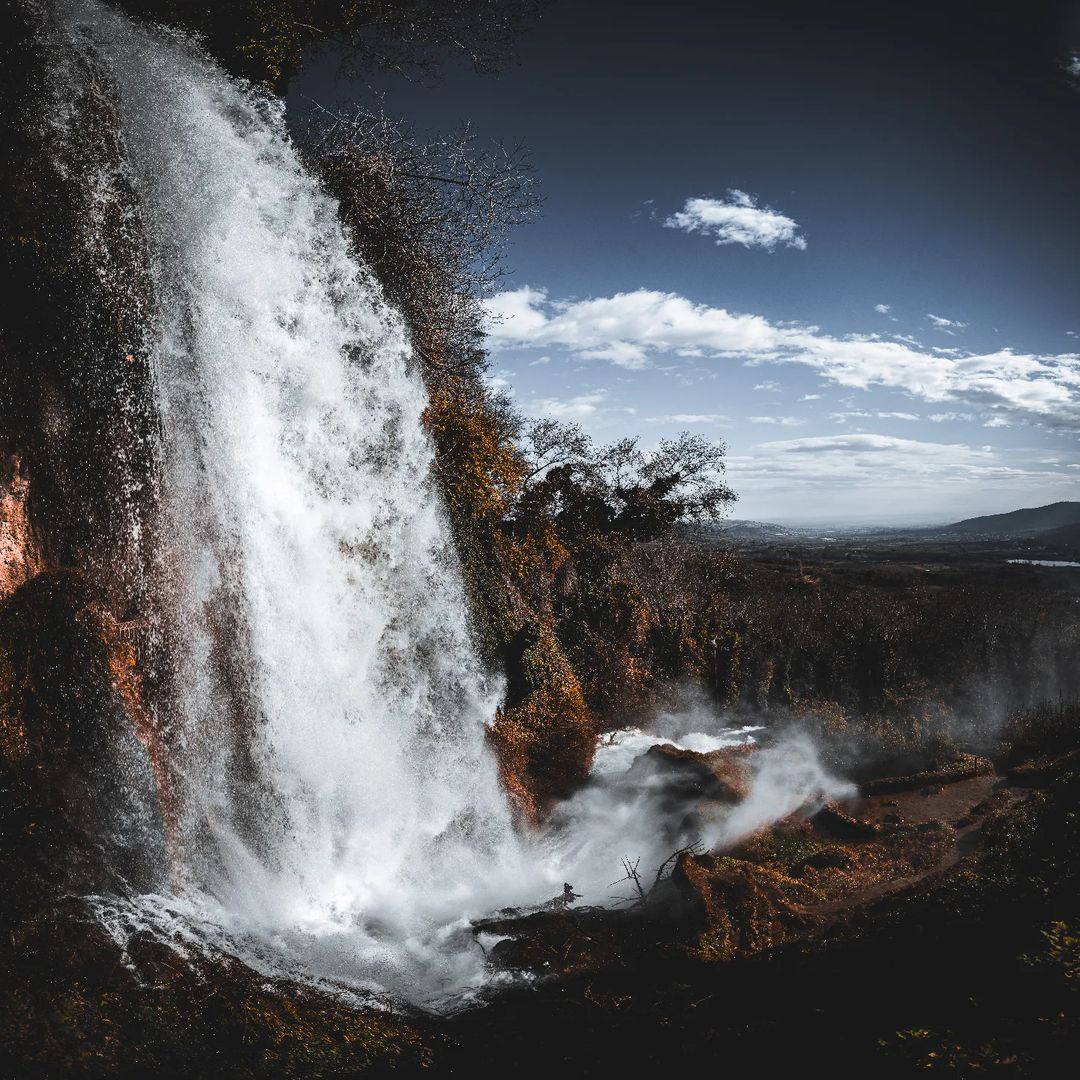
@takis_dim_photo

@lenatrypa
Greek Winter Staple Dishes You Will Definitely Love
Let the gastronomic journey through some must-try Greek winter dishes begin!
1. Trahanas Soup

Trahanas, a traditional Greek pasta made from wheat or semolina flour mixed with sour milk or yogurt, is the star of this comforting soup. Simmered with vegetables like tomatoes, onions, and sometimes meat, Trahanas Soup offers a hearty and nourishing meal perfect for cold winter evenings.
2. Revithada

Revithada is a rustic Greek dish consisting of slow-cooked chickpeas, simmered with onions, garlic, olive oil, and a blend of aromatic herbs. Traditionally baked in a clay pot in a wood-fired oven, this hearty stew develops rich flavors and creamy textures that make it a true winter comfort food.

Lahanodolmades are cabbage rolls stuffed with a savory mixture of ground meat, rice, and herbs, simmered in a tomato-based sauce. This humble yet flavorful dish showcases the ingenuity of Greek home cooks, who transform simple ingredients into a hearty and satisfying meal that's perfect for warming up during the winter months.

Psarosoupa, or Greek fish soup, is a soul-warming dish made with a variety of fish, vegetables, and fragrant herbs. Simmered to perfection, this hearty soup is both nutritious and comforting, offering a taste of the Mediterranean even on the chilliest of days.

Melitzanes Papoutsakia, which translates to "eggplant little shoes," is a lesser-known Greek dish that's as fun to say as it is to eat. Halved eggplants are filled with a flavorful mixture of minced meat, tomatoes, onions, and spices, then topped with a generous layer of creamy béchamel sauce and baked until golden and bubbly.

Kolokythokeftedes are Greek zucchini fritters, made by grating zucchini and combining it with herbs, cheese, and flour, then frying until crispy and golden brown. Served hot with a dollop of tzatziki sauce, these fritters are a delicious and satisfying winter snack or appetizer.
Timeless Greek Philosophy: 5 Must-Read Works For Enduring Wisdom
-
"The Symposium" by Plato
- Genre: Philosophy, Dialogue
- In this philosophical dialogue, Plato explores the nature of love and desire through a series of speeches delivered at a banquet. "The Symposium" provides profound insights into the different aspects of love, with themes that continue to resonate in discussions on relationships, beauty, and the pursuit of the ideal.
-
"Nicomachean Ethics" by Aristotle
- Genre: Philosophy
- Aristotle's "Nicomachean Ethics" remains a cornerstone of ethical philosophy. Delving into the nature of virtue, happiness, and the moral character of individuals, this work serves as a timeless guide for contemplating the principles of a well-lived life.
-
"The Meditations" by Marcus Aurelius
- Genre: Philosophy, Stoicism
- Penned by the Roman Emperor Marcus Aurelius, "The Meditations" offers a series of personal reflections on Stoic philosophy. Through these introspective writings, Aurelius explores the importance of reason, virtue, and the acceptance of life's inevitable challenges.
-
"The Bacchae" by Euripides
- Genre: Tragedy, Drama
- Euripides' tragedy "The Bacchae" delves into the conflict between rationality and primal instincts, embodied by the god Dionysus. Exploring themes of ecstasy, liberation, and the consequences of denying fundamental aspects of human nature, this play invites profound philosophical reflection.
-
"The Consolation of Philosophy" by Boethius
- Genre: Philosophy, Consolation Literature
- Composed while imprisoned, Boethius' work engages with philosophical questions on fate, free will, and the nature of happiness. "The Consolation of Philosophy" takes the form of a dialogue between Boethius and Lady Philosophy, offering solace and wisdom in the face of adversity.

